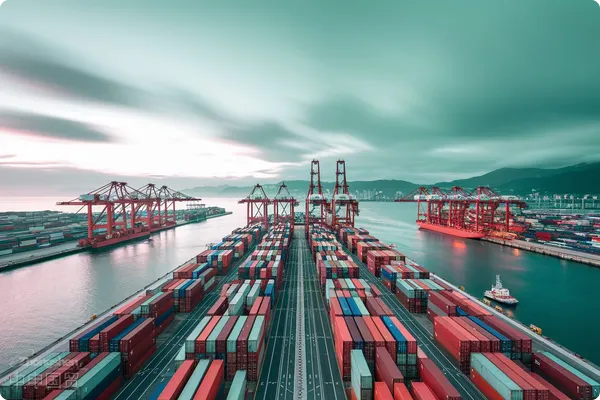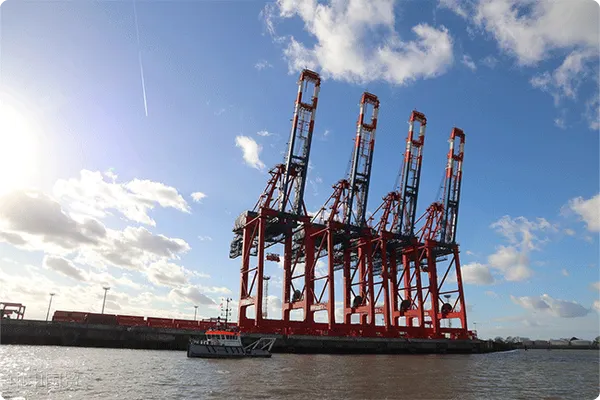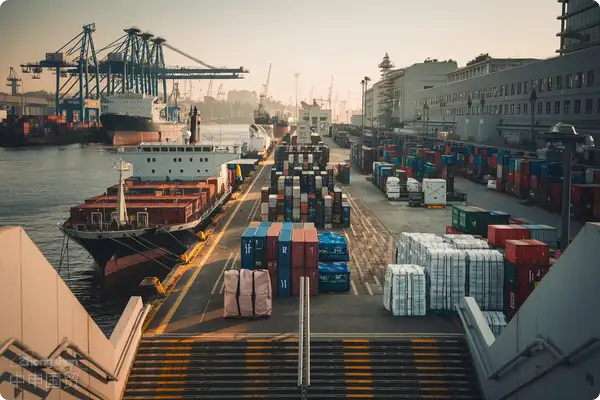- Shanghai Zhongshen International Trade Co., Ltd. - Two decades of trade agency expertise.
- Service Hotline: 139 1787 2118
Home ? Trade Essentials ? How to Choose a Reliable RV Export Agent? What Are the Pitfalls to Watch Out for in Overseas Customs Clearance?

How to Evaluate an RVExport RepresentationAgents Actual Qualifications?
When selecting an agent, focus on three key dimensions:Industry operational experience,Trade compliance capability,Overseas resource network. It is recommended to request the following:
- Transaction records of similar productsExport Clearancefrom the past 3 years (to verify actual business volume)
- International freight forwarding qualification certificates (such as FIATA, WCA certifications)
- Customs clearance cases in target markets (especially experience in handling RV classification disputes)
What Are the Key Steps in the RV Export Process?
The standard process can be divided into five stages:
- Contract negotiation stage
- Clarify trade terms (recommended use of CIF/DDP clauses)
- Agree on modification standards (must comply with destination regulations)
- Customs declaration preparation stage
- Obtain international certification for vehicle VIN codes
- Prepare EC certificates (mandatory for EU)
- Logistics and transportation stage
- Choose roll-on/roll-off (RO-RO) shipping or container loading
- Process ATA temporary admission procedures (for exhibition vehicles)
What Are the Special Regulations for Importing RVs in Different Countries?
Regulatory differences in major export markets:
- European Union Market: Must pass WVTA whole vehicle type approval, and onboard refrigerators require separate CE certification
- Australian market: Requires installation of Roll-Over Protective Structures (ROPS), tires must comply with ADR standards
- Middle East market: Air conditioning systems must use R1234yf environmentally friendly refrigerant instead of prohibited R134a
IV. How to prevent common transportation risks for exported RVs?
Recommended graded protection measures:
- Physical protection: Use airbag fixing devices, apply anti-rust coating to chassis
- Document protection: Obtain clean bills of lading certified by ICC International Chamber of Commerce
- : Require the agent to purchase liability insurance of at least 5 million yuan: Purchase insurance covering Institute Cargo Clauses A + war risks
V. What hidden costs are included in agent service fees?
Beyond basic agency fees (typically 1.5-3% of cargo value), pay special attention to:
- Destination port charges (THC, DOC, etc.) prepaid/collect options
- Modification supervision fees ($80-150 per hour)
- Certificate renewal fees (e.g. annual EPA certification renewal for US market)
VI. How to ensure RVs comply with target market environmental requirements?
Key 2025 considerations:
- EU new regulations: On-board generators must meet EU Stage V emission standards
- California CARB certification: Lithium - ion battery packs need to pass the UN38.3 test.
- UKCA marking: Transition period for parallel use with CE certification until 2026
VII. What special considerations exist for emerging market expansion?
For Southeast Asia, South America and other emerging markets:
- Import deposit requirements (Brazil demands 110% of cargo value as deposit)
- Halal certification (Malaysia requires kitchen equipment certification)
- Right-hand drive conversion (Mandatory in Thailand, South Africa, etc.)
Tags: Customs Declaration Foreign Trade Documents Export trade Foreign Trade Documents Export Customs Declaration Form Foreign Trade Documents Export Cars Foreign Trade Documents . If abnormal situations such as one license for multiple addresses or off - site customs declaration are found in the agency, please report immediately to the local customs inspection department. Foreign Trade Documents How to complete the compliant export of imported essential oils through professional agents? The latest guide in 2025 answers - Shanghai Zhongshen International Trade Import and Export Agency Service Foreign Trade Documents Clearance Foreign Trade Documents Cosmetics Import and Export Services
Related Recommendations
Learn
Contact Us
Tel: 139 - 1787 - 2118
Email: service@sh-zhongshen.com
Email: service@sh-zhongshen.com
Related Recommendations
Contact via WeChat

? 2025. All Rights Reserved. Shanghai ICP No. 2023007705-2  PSB Record: Shanghai No.31011502009912
PSB Record: Shanghai No.31011502009912









